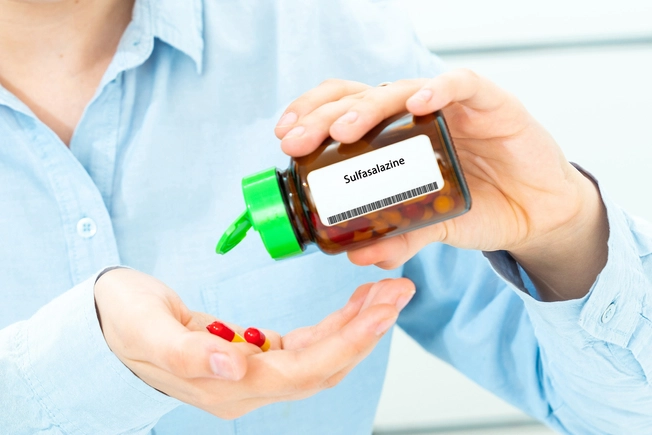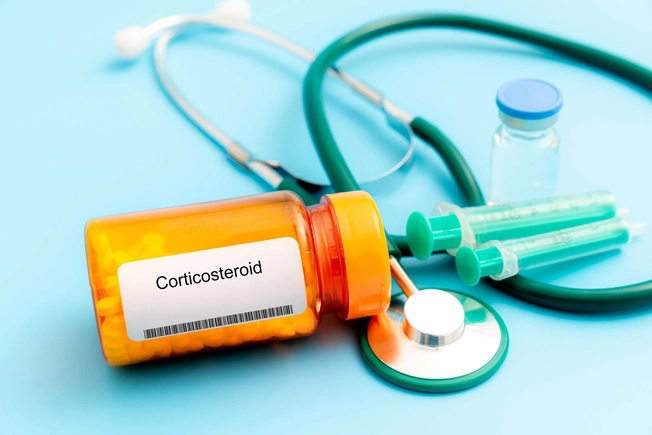Ulcerative Colitis Medications


Ulcerative Colitis Medications
Many people with ulcerative colitis need medication to reduce inflammation, prevent flare-ups, and ease their symptoms. Since treatment is unique for everyone, some people need to try different meds or a combination of them before they start to feel better.

Over-the-counter Options
Over-the-counter medications can be helpful when your symptoms aren't too severe. You can try diarrhea meds like loperamide and pain relievers like ibuprofen. You can also find supplements to prevent bleeding and spasms. Always check with your doctor to see which over-the-counter medication may work for you.

Lowering Inflammation
Aminosalicylates, aka 5-ASA drugs, like mesalamine or sulfasalazine, reduce gut inflammation. These are common choices for those with mild to moderate ulcerative colitis because they help control symptoms and can keep you in remission. If these don't work, you can try targeted small-molecule meds like tofacitinib and upadacitinib.

Corticosteroids
Corticosteroids, like budesonide and prednisone, help manage flare-ups by suppressing your immune system. They lower inflammation quickly but are usually used as short-term options because of the potential side effects.

Options for Severe Cases
If other meds don't work, your doctor may suggest immunomodulators like azathioprine and mercaptopurine to control symptoms. You can also try biologics like adalimumab and infliximab to reduce inflammation and heal your colon. However, because of the potential side effects, these are often a last resort and require regular monitoring.
PHOTO CREDENTIALS
Slide 01 - Pixel-Shot/Shutterstock
Slide 02 - Yuri A/Shutterstock
Slide 03 - luchschenF/Shutterstock
Slide 04 - luchschenF/Shutterstock
Slide 05 - Tualek Photography/Shutterstock
SOURCES
Crohn's & Colitis Foundation of America: “Aminosalicylates,” “Corticosteroids,” “Immunomodulators,” “Fact Sheet: Biologics,” “Medication Options for Ulcerative Colitis,” “Vitamin and Mineral Supplementation.”
FDA: “FDA approves Amjevita, a biosimilar to Humira.”
National Institute of Diabetes and Digestive and Kidney Diseases: “Ulcerative Colitis.”
Medscape: “Ulcerative Colitis Treatment & Management.”
Nature Reviews Drug Discovery: “JAK inhibition as a therapeutic strategy for immune and inflammatory diseases.”
New England Journal of Medicine: “Ustekinumab as Induction and Maintenance Therapy for Ulcerative Colitis.”
American Journal of Gastroenterology: “Vedolizumab for Ulcerative Colitis: Treatment Outcomes from the VICTORY Consortium.”
Inflammatory Bowel Diseases: “Use of methotrexate in the treatment of inflammatory bowel diseases (IBD).”
Mayo Clinic: “Ulcerative colitis: Treatment and drugs,” “Prednisone and other corticosteroids.”
MedlinePlus: “Infliximab Injection,” “Ozanimod.”
Gastroenterology & Hepatology: “Janus Kinase Inhibitors for the Management of Patients With Inflammatory Bowel Disease.”
UpToDate: “Management of moderate to severe ulcerative colitis in adults,” “Patient Education: Ulcerative Colitis (Beyond the Basics).”
Cleveland Clinic: “Antispasmodics.”
Johns Hopkins Medicine: “Side Effects of Biologic Medications.”